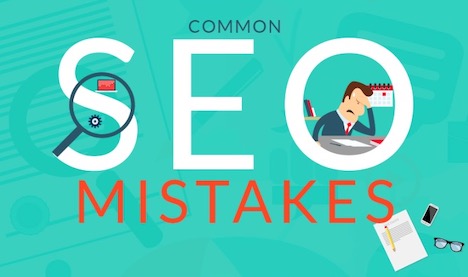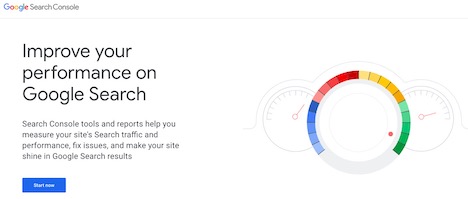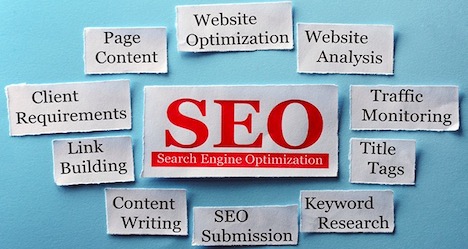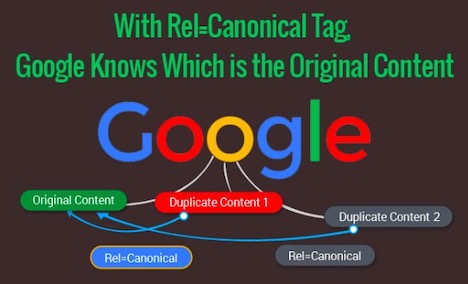20 Worst SEO Mistakes You Don’t Want to Make
SEO mistakes happen all the time but most can be avoided. Some are more severe than others but almost all have huge impacts of your search traffic. We have put together a list of the twenty worst mistakes to help you avoid these issues. If you audit your website against these mistakes there is a good chance you will be ahead of the competition.
1. Website Not Mobile Friendly
It’s 2018 and well over 65% of all web searches are done on a mobile device. It is so important that in July Google released an algorithm update to provide a better user experience. If your website is not mobile friendly you are losing out on business.
2. Content Calendar or Lack of One
Planning out your content strategy is of vital importance. Don’t go willy-nilly and just spit content out. You must do your research and find out what kind of articles your audience would be looking for. Be a resource for everything related to your niche. Next, you should then use a content calendar to plan out when exactly each content piece should be published.
3. Not Promoting Blog Posts
Often times companies will push out blog post after blog post. After they hit the “publish” button the think their job is done. That is really just the start. Every blog post should be promoted. At the very minimum, you should market via Twitter and Facebook. Getting social shares increases the likelihood someone may link to your posts.
4. Not Registered with Google Search Console
There are so many juicy details inside Google Search Console. We utilize the search data to see what keywords clients are close to ranking for that we might not be aware of. Often these are the low hanging fruit that has huge upside potential. Search data is not the only information in the console, inside you will find index data and sites that link to you.
5. 404’s Pages
Link building is hard work. It pains me to see when someone moves a URL and doesn’t use a 301 redirect. A 301 redirect tells search engine a page has been permanently moved. The search engines then pass along any links to the new page. Having pages with links that return a 404 is just a waste.
6. Wrong Keywords
There are two main frustrations when it comes to wrong keywords. First, the keywords that have zero traffic or so little traffic it will never help you. Some SEO Companies include these insignificant keywords in their ranking reports. It’s a waste and especially when the keyword volume is less than 30 searches per month. On the other side are companies that focus on keywords that they will never rank for. Examples like “healthcare” or “insurance” to name a few. Stick to keywords that make sense for your business and will deliver targeted traffic. You can do this by performing proper keyword research.
7. Staging Environment Index
Sadly this is a very common mistake that we have seen numerous times. A web design firm starts a project for a client and they forget to block the new design from the search engine crawlers. This can cause issues with duplicate content and in general, confuse the search engines. In many cases, this has caused a loss in website traffic.
8. Ignoring SEO Advice
In general, when an SEO Company gives advice, you should follow it. SEO Companies do best when their clients increase in traffic and rank well. You may need an explanation on why you should do something but keep in mind you are hindering the success of your website by not listing.
Stuart McHenry of McKremie explains, “In some companies, it can take several months to make changes. Some forget or fail to get final approval for specific changes. We worked with an Irvine business that had multiple locations within the city. The company used a call center for all phone calls. Each location had the same phone number and they were tripping spam filters that prevented them from ranking well in the local 3-pack. It took six months to get them to make the changes and when they did their local traffic skyrocketed.”
9. Poor Title Tag Optimization
Title Tags are still a very important ranking signal for the search engines. Some websites have poorly optimized titles. Whether it’s missing keywords or having too many keywords this can be a problem. It is a good idea to audit your title tags to ensure they are helping and not hurting.
10. Internal Linking
Links are important as they tell the search engines if a page is important or not. Your important pages on your website should be linked either from your homepage or not more than one click away. Also, internal anchor text helps. Don’t be afraid to use juicy anchor text when linking to your pages.
11. Slow Loading Website
Ever click on a webpage and you lose patients because it is slow to load? You are not alone. More than half of all searchers will click the back button if a webpage doesn’t load within three seconds. Check your code and ensure you have a quality web host. You can also you tools like Google Page Speed Insights to help determine how slow your web pages are.
12. Poor Quality Content
We all have low-quality content hiding somewhere. Do your website a favor and create a list of the poorly written short articles. Then one-by-one start planning out when you can get these articles updated. This addresses two important issues; poor content and fresh new content.
McHenry also explains, “It is a good idea to be a complete resource as much as possible. A good example if the medical spa marketing blog post I wrote. It contains lots of vital information to any business that needs a starting point for that specific industry.”
13. Ignoring Local SEO
Don’t do it. For years many websites ignored local SEO opportunities. Local SEO has the potential to deliver good amounts of traffic and often convert better than national search results. To some extent every business is local. Figure out how to you can advantage of this and increase your visitors.
14. Low-Quality Links
Quality is everything when it comes to SEO. Like quality content, your links need to be high quality as well. Low-quality links have the potential to do more damage than good. So how do you know what is a high-quality link? One of the ways that work well for most SEO’s is checking the websites Google traffic. No traffic usually means poor quality website while a website that ranks well means Google trusts the website and its content.
15. Lack of Reviews
Does your website/company have reviews on Google? This is especially important for Local SEO but surely has an impact on overall trust in Google. If you want to rank in the local 3-packs you will need reviews, especially in competitive niches. The average company that ranks in the top three of the local pack has a star rating of 4-4.5.
16. Canonicalization Tags
Do you have multiple pages that discuss the same subject? You can tell the search engines specifically which page is more important than the other by using the canonical tag. This tag is helpful in preventing duplicate content in the search results.
17. Crap Content
Who is writing your content and how good are the articles? It’s safe to say if you are hiring someone off of Fiverr to write your comprehensive articles for $5.00 you probably aren’t getting well-written content. There are lots of article writing companies that will spit out 500-word articles for cheap. This is not good SEO. It’s always good to find quality writers that can effectively research and write about your content.
18. Broken Links
Broken links whether they are internal or external are bad for user experience. If they are internal then you are wasting an opportunity to link to the actual active page. This can have a big impact on technical SEO. You can fix this by using tools like Ahrefs Broken Link Tool which will crawl your website and provide you with a report.
19. Lack of E-A-T
Google provides the Quality Raters Guidelines for anyone that wants to read them. These guidelines get updated from time-to-time. In the past few years, Google has put more focus in ranking websites that have a high level of E-A-T. Which stands for Expertise, Authority, and Trust. Expertise is determined by who is creating the content. Think of this as industry expert Vs anonymous article. Authority is helped determined by how authoritative your website is within your industry. This could be various things but surely includes links and non-linked mentions. Lastly, you have Trust which encompasses so many things including reviews and if your website uses an SSL.
20. Giving Up Too Soon
When it comes to SEO many give up too soon. Good SEO is hard work and takes time. If it were easy everyone would be doing it. Put a marketing plan in place and give it time to work. If you have a new website it could take six to nine months to start seeing significant traffic. While the more established website can see an increase within three to four month. Whatever you do, keep plugging away.
Tags: seo, tips & tricks



























































